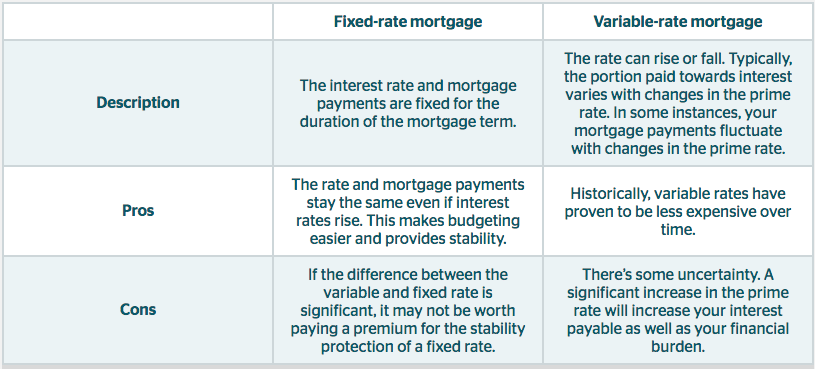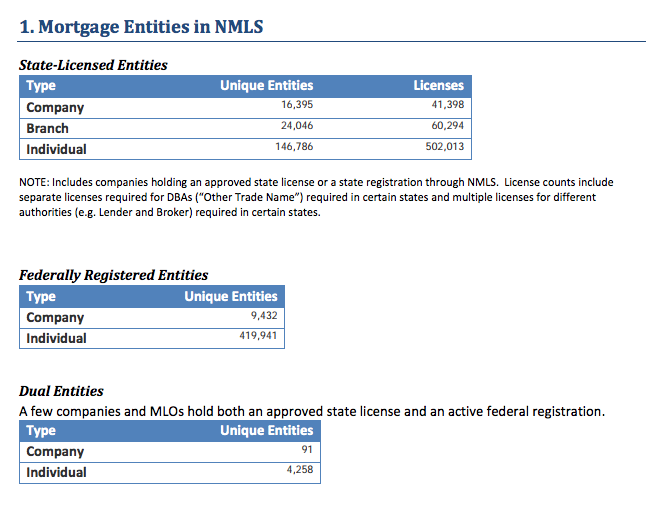Home loan payments are structured so that interest is paid off sooner, with the bulk of mortgage payments in the first half of your mortgage term going toward interest. As the loan amortizes, a growing number of of the home loan payment approaches the principal and less toward its interest. Check out on: Before you even get a home loan, you have to get preapproved. When you sign, these become what you need to pay. With a fixed-rate home mortgage, your rate of interest remains the exact same throughout the life of the home mortgage. (Home loans usually last for 15 or 30 years, and payments must be made month-to-month.) While this implies that your rate of interest can never go up, it likewise means that it might be greater usually than an adjustable-rate home loan gradually.
However, you usually get a specific number of years at the start of the loan duration during which the rate of interest is repaired. For example, if you have a 7/1 ARM, you get 7 years at the fixed rate after which the rate can be adjusted when each year. This implies your month-to-month home mortgage payment could go up or down to account for modifications to the interest rate.
If you're 62 or older and want money to pay off your home loan, supplement your income, or spend for healthcare expenditures you may consider a reverse home mortgage. It enables you to convert part of the equity in your house into money without needing to offer your home or pay extra monthly expenses.
A reverse home mortgage can consume the equity in your house, which means less assets for you and your heirs. If you do choose to search for one, review the various kinds of reverse home loans, and comparison shop prior to you select a particular business - how does chapter 13 work with mortgages. Continue reading for more information about how reverse home loans work, certifying for a reverse home mortgage, getting the very best offer for you, and how to report any fraud you might see.

All About How Do Jumbo Mortgages Work
In a home mortgage, you get a loan in which the lender pays you. Reverse mortgages take part of the equity in your home and transform it into payments to you a Great site kind of advance payment on your home equity. The cash you get normally is tax-free. Typically, you don't need to repay the cash for as long as you reside in your home.
Sometimes that means selling the house to get cash to pay back the loan. There are 3 kinds of reverse home mortgages: single function reverse mortgages provided by some state and city government agencies, as well as non-profits; proprietary reverse mortgages private loans; and federally-insured reverse home loans, also known as House Equity Conversion Home Loans (HECMs).

You keep the title to your house. Instead of paying regular monthly mortgage payments, though, you get a bear down part of your home equity (how do variable mortgages work in canada). The cash you get generally is not taxable, and it typically won't impact your Social Security or Medicare benefits. When the last making it through borrower passes away, sells the house, or no longer lives in the house as a primary home, the loan needs to be paid back.
Here are some things to consider about reverse home loans:. Reverse home loan loan providers generally charge an origination charge and other closing costs, along with servicing costs over the life of the home loan. Some likewise charge home loan insurance premiums (for federally-insured HECMs). As you get money through your reverse mortgage, interest is included onto the balance you owe each month.
How Do Reverse Annuity Mortgages Work - Truths
Most reverse mortgages have variable rates, which are tied to a monetary index and change with the marketplace. Variable rate loans tend to give you more alternatives on how you get your money through the reverse mortgage. Some reverse mortgages mostly HECMs provide fixed rates, but they tend to require you to take your loan as a lump amount at closing.
Interest on reverse home loans is not deductible on income tax returns till the loan is paid off, either partially or completely. In a reverse home loan, you keep the title to your home. That indicates you are accountable for home taxes, insurance coverage, utilities, fuel, upkeep, and other costs. And, if you don't pay your property taxes, keep house owner's insurance, or maintain your house, the loan provider may need you to repay your loan.
As a result, your lender may need a "set-aside" quantity to pay your taxes and insurance throughout the loan. The "set-aside" decreases the quantity of funds you can get in payments. You are still responsible for keeping your house. With HECM loans, if you signed the loan paperwork and your spouse didn't, in certain scenarios, your partner may continue to reside in the home even after you die if she or he pays taxes and insurance coverage, and continues to maintain the residential or commercial property.
Reverse home loans can consume the https://writeablog.net/godellzcvc/loan-can-only-be-called-due-if-agreement-terms-for-repayment-taxes-and equity in your house, which indicates less assets for you and your heirs. The majority of reverse home loans have something called a "non-recourse" provision. This suggests that you, or your estate, can't owe more than the worth of your house when the loan becomes due and the house is offered.
How Do Mortgages Loans Work Fundamentals Explained
As you consider whether a reverse home loan is best for you, also consider which of the 3 kinds of reverse home loan may finest match your requirements. are the least expensive option. They're offered by some state and regional federal government firms, in addition to non-profit organizations, however they're not available all over.
For example, the lending institution may say the loan may be utilized only to pay for house repair work, improvements, or property taxes. The majority of house owners with low or moderate earnings can get approved for these loans. are private loans that are backed by the companies that establish them. If you own a higher-valued home, you may get a larger loan advance from a proprietary reverse home loan.
are federally-insured reverse home loans and are backed by the U. S. Department of Real Estate and Urban Advancement (HUD). HECM loans can be utilized for any purpose. HECMs and proprietary reverse mortgages might be more expensive than conventional home mortgage, and the upfront expenses can be high. That is essential to consider, especially if you plan to stay in your house for just a brief time or obtain a small quantity.
In general, the older you are, the more equity you have in your house, and the less you owe on it, the more cash you can get. Before getting a HECM, you must consult with a counselor from an independent government-approved real estate timeshare online therapy agency. Some lending institutions providing proprietary reverse home mortgages also require counseling.